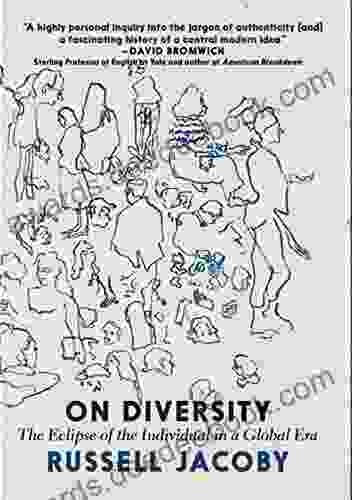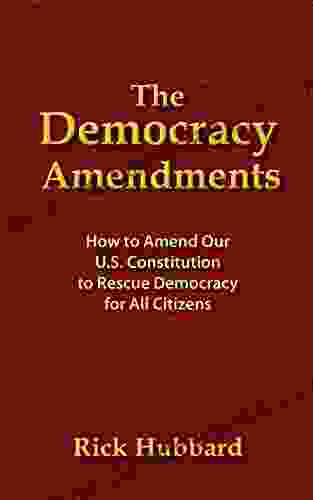American Business and Foreign Policy, 1920-1933: A Comprehensive Analysis of Corporate Influence and Government Action

The period between 1920 and 1933 was a time of significant change in the relationship between American business and foreign policy. The United States emerged from World War I as the world's leading economic power, and American businesses were eager to expand their operations overseas. At the same time, the U.S. government was increasingly involved in international affairs, and it began to play a more active role in shaping the global economy.
The relationship between business and government was not always smooth. Businesses often clashed with the government over trade policy, tariffs, and other issues. However, there were also times when businesses and the government worked together to promote American interests abroad.
5 out of 5
| Language | : | English |
| File size | : | 906 KB |
| Text-to-Speech | : | Enabled |
| Enhanced typesetting | : | Enabled |
| Word Wise | : | Enabled |
| Screen Reader | : | Supported |
| Print length | : | 357 pages |
| Hardcover | : | 118 pages |
| Item Weight | : | 10.2 ounces |
| Dimensions | : | 7 x 0.46 x 10 inches |
This article will explore the complex relationship between American business and foreign policy during the period 1920-1933. It will examine the ways in which corporate interests shaped U.S. foreign policy during this period and the impact of government action on business interests overseas. The article will also discuss the role of business in promoting American economic expansion and the ways in which business interests influenced the U.S. response to the rise of fascism and communism.
Corporate Interests and Foreign Policy
American businesses had a significant impact on U.S. foreign policy during the period 1920-1933. Businesses lobbied the government for favorable trade policies, tariffs, and other measures that would benefit their operations overseas. They also played a role in shaping U.S. policy toward specific countries and regions.
One of the most important ways that businesses influenced foreign policy was through their control of the media. Many of the largest newspapers and magazines in the United States were owned by business interests, and these outlets often reflected the views of their owners in their coverage of international affairs. This gave businesses a powerful tool for shaping public opinion on foreign policy issues.
Businesses also used their financial resources to influence foreign policy. They made campaign contributions to politicians who supported their interests, and they provided funding for think tanks and other organizations that promoted their views. This gave businesses a significant amount of influence over the political process.
In addition to their direct lobbying efforts, businesses also worked through trade associations and other organizations to influence foreign policy. These organizations represented the interests of specific industries, and they worked to ensure that government policies were favorable to their members.
Government Action and Business Interests
The U.S. government also played a significant role in shaping the relationship between business and foreign policy during this period. The government used its regulatory powers to control the activities of American businesses overseas, and it also used its diplomatic and military power to protect American business interests.
One of the most important ways that the government regulated business activity overseas was through the antitrust laws. These laws were designed to prevent monopolies and other forms of unfair competition. The government also used its regulatory powers to control the export of goods and technology.
The government also used its diplomatic and military power to protect American business interests overseas. The U.S. Navy maintained a presence in the Caribbean and the Pacific, and it intervened in several countries to protect American businesses. The government also used its diplomatic power to negotiate trade agreements and other agreements that benefited American businesses.
The Role of Business in American Economic Expansion
American businesses played a major role in the economic expansion of the United States during the period 1920-1933. Businesses invested heavily in new technologies and new industries, and they expanded their operations both domestically and overseas. This led to a period of rapid economic growth and prosperity.
One of the most important factors in the economic expansion of this period was the development of new technologies. New inventions, such as the automobile and the airplane, created new industries and new opportunities for businesses. Businesses also invested heavily in new technologies, such as electricity and chemicals, which helped to increase productivity and efficiency.
Another important factor in the economic expansion of this period was the growth of consumer spending. As wages rose, Americans had more money to spend on goods and services. This led to a boom in the consumer goods industry, and it also helped to create new jobs.
The economic expansion of this period was not limited to the United States. American businesses also expanded their operations overseas, and they played a major role in the development of the global economy. American businesses invested in mines, plantations, and other businesses in Latin America, Asia, and Africa. They also established branches and subsidiaries in these regions, and they exported American goods and services to these markets.
Business Interests and the Rise of Fascism and Communism
The rise of fascism and communism in the 1920s and 1930s had a profound impact on American business interests. Fascist and communist governments were hostile to private enterprise, and they often confiscated the assets of foreign businesses. This led to a decline in American investment in these countries, and it also made it more difficult for American businesses to operate in these markets.
American businesses were particularly concerned about the rise of communism in the Soviet Union. The Soviet government nationalized all private property, and it imposed severe restrictions on foreign investment. This made it impossible for American businesses to operate in the Soviet Union, and it also led to the loss of billions of dollars in American investment.
American businesses also worried about the spread of fascism in Europe. Fascist governments in Italy and Germany imposed restrictions on foreign investment, and they also discriminated against Jewish businesses. This made it more difficult for American businesses to operate in these countries, and it also led to a decline in American investment in these markets.
The relationship between American business and foreign policy was complex and evolving during the period 1920-1933. Businesses played a major role in shaping U.S. foreign policy during this period, and they also benefited from government action that protected their interests overseas. However, the rise of fascism and communism in the 1920s and 1930s had a negative impact on American business interests, and it led to a decline in American investment in these countries.
5 out of 5
| Language | : | English |
| File size | : | 906 KB |
| Text-to-Speech | : | Enabled |
| Enhanced typesetting | : | Enabled |
| Word Wise | : | Enabled |
| Screen Reader | : | Supported |
| Print length | : | 357 pages |
| Hardcover | : | 118 pages |
| Item Weight | : | 10.2 ounces |
| Dimensions | : | 7 x 0.46 x 10 inches |
Do you want to contribute by writing guest posts on this blog?
Please contact us and send us a resume of previous articles that you have written.
 Chapter
Chapter Story
Story Library
Library E-book
E-book Newspaper
Newspaper Paragraph
Paragraph Sentence
Sentence Bookmark
Bookmark Glossary
Glossary Annotation
Annotation Footnote
Footnote Manuscript
Manuscript Scroll
Scroll Bestseller
Bestseller Classics
Classics Reference
Reference Dictionary
Dictionary Thesaurus
Thesaurus Narrator
Narrator Resolution
Resolution Librarian
Librarian Catalog
Catalog Card Catalog
Card Catalog Borrowing
Borrowing Archives
Archives Periodicals
Periodicals Study
Study Research
Research Scholarly
Scholarly Lending
Lending Reserve
Reserve Academic
Academic Special Collections
Special Collections Literacy
Literacy Thesis
Thesis Dissertation
Dissertation Storytelling
Storytelling Awards
Awards Reading List
Reading List Textbooks
Textbooks Sophie Pierce
Sophie Pierce Errico Malatesta
Errico Malatesta Susin Nielsen
Susin Nielsen Beverly Cleary
Beverly Cleary Lara Neel
Lara Neel Jean Stone
Jean Stone Thomas Seroogy
Thomas Seroogy C H Eryl
C H Eryl Matthew Sakiestewa Gilbert
Matthew Sakiestewa Gilbert Alexandra Vasiliu
Alexandra Vasiliu Bernard F Morrey
Bernard F Morrey Jen Gaudet
Jen Gaudet Tracy Adams
Tracy Adams Steven Schaerer
Steven Schaerer Dennis Mccarthy
Dennis Mccarthy Mark A Vieira
Mark A Vieira Malcolm D Holmes
Malcolm D Holmes Peter Lovrick
Peter Lovrick Lutz Academy
Lutz Academy A M Yates
A M Yates
Light bulbAdvertise smarter! Our strategic ad space ensures maximum exposure. Reserve your spot today!

 Ernest HemingwaySocial Distortion Live At The Roxy Songbook: A Timeless Masterpiece of Punk...
Ernest HemingwaySocial Distortion Live At The Roxy Songbook: A Timeless Masterpiece of Punk... George BellFollow ·14.3k
George BellFollow ·14.3k Gil TurnerFollow ·16.2k
Gil TurnerFollow ·16.2k Matt ReedFollow ·5.8k
Matt ReedFollow ·5.8k Raymond ParkerFollow ·4k
Raymond ParkerFollow ·4k Sean TurnerFollow ·19.2k
Sean TurnerFollow ·19.2k Ronald SimmonsFollow ·8k
Ronald SimmonsFollow ·8k Travis FosterFollow ·6.7k
Travis FosterFollow ·6.7k George OrwellFollow ·18.1k
George OrwellFollow ·18.1k

 Roger Turner
Roger TurnerThe Waning of the Individual in the Global Era: A...
In the rapidly globalizing world of today,...

 Reginald Cox
Reginald CoxFirst of Verbs: An Early Language
The First of Verbs (FOV) is an early...

 Cody Blair
Cody BlairThe Biography Of The Myth: Routledge Historical...
Who is the Myth?...

 Dean Cox
Dean CoxArtificial Neural Networks: Unraveling the Amazing...
Artificial Neural Networks (ANNs),...

 Kyle Powell
Kyle PowellHow To Amend Our Constitution To Rescue Democracy For All...
Our democracy is in...
5 out of 5
| Language | : | English |
| File size | : | 906 KB |
| Text-to-Speech | : | Enabled |
| Enhanced typesetting | : | Enabled |
| Word Wise | : | Enabled |
| Screen Reader | : | Supported |
| Print length | : | 357 pages |
| Hardcover | : | 118 pages |
| Item Weight | : | 10.2 ounces |
| Dimensions | : | 7 x 0.46 x 10 inches |












